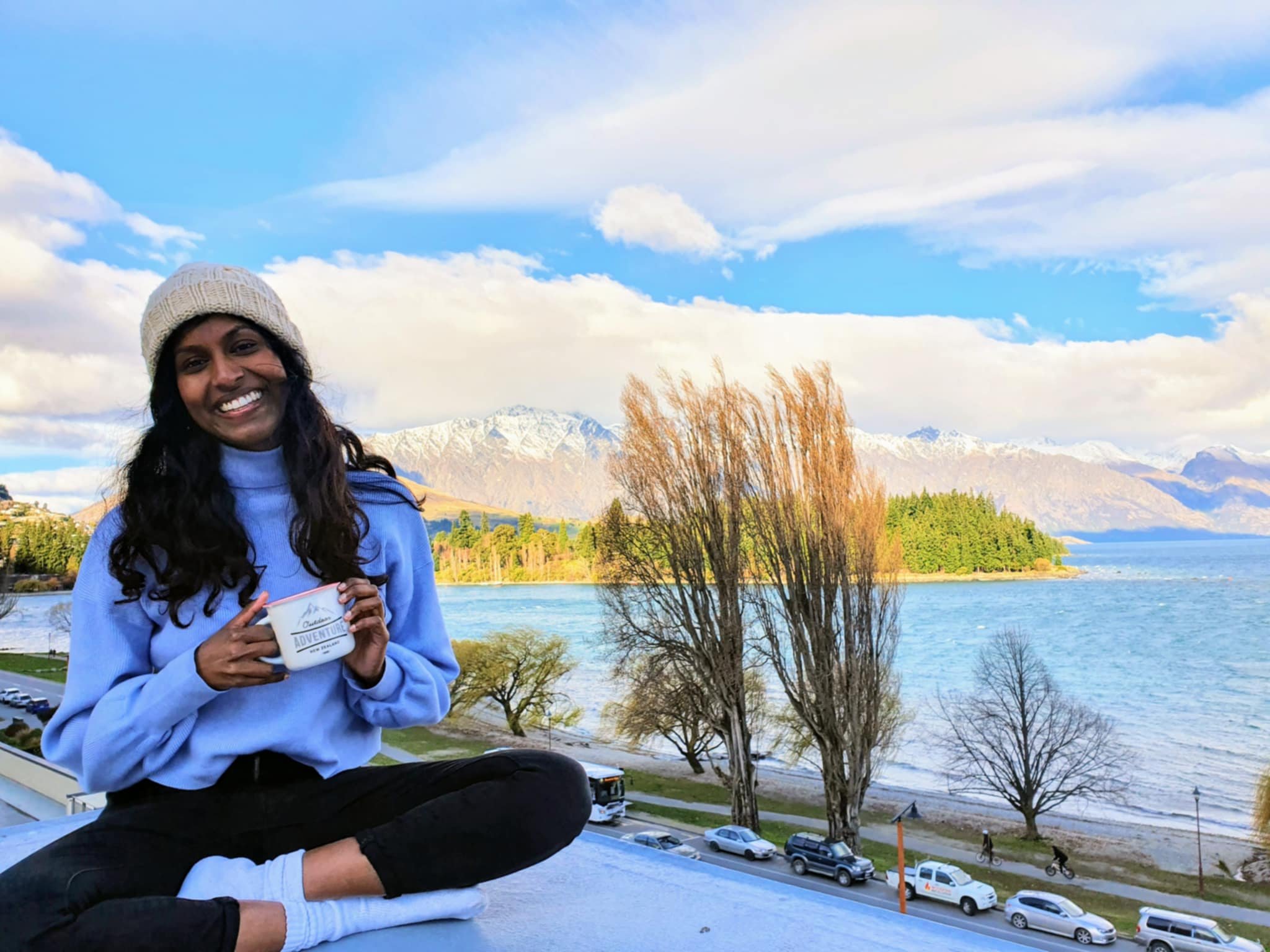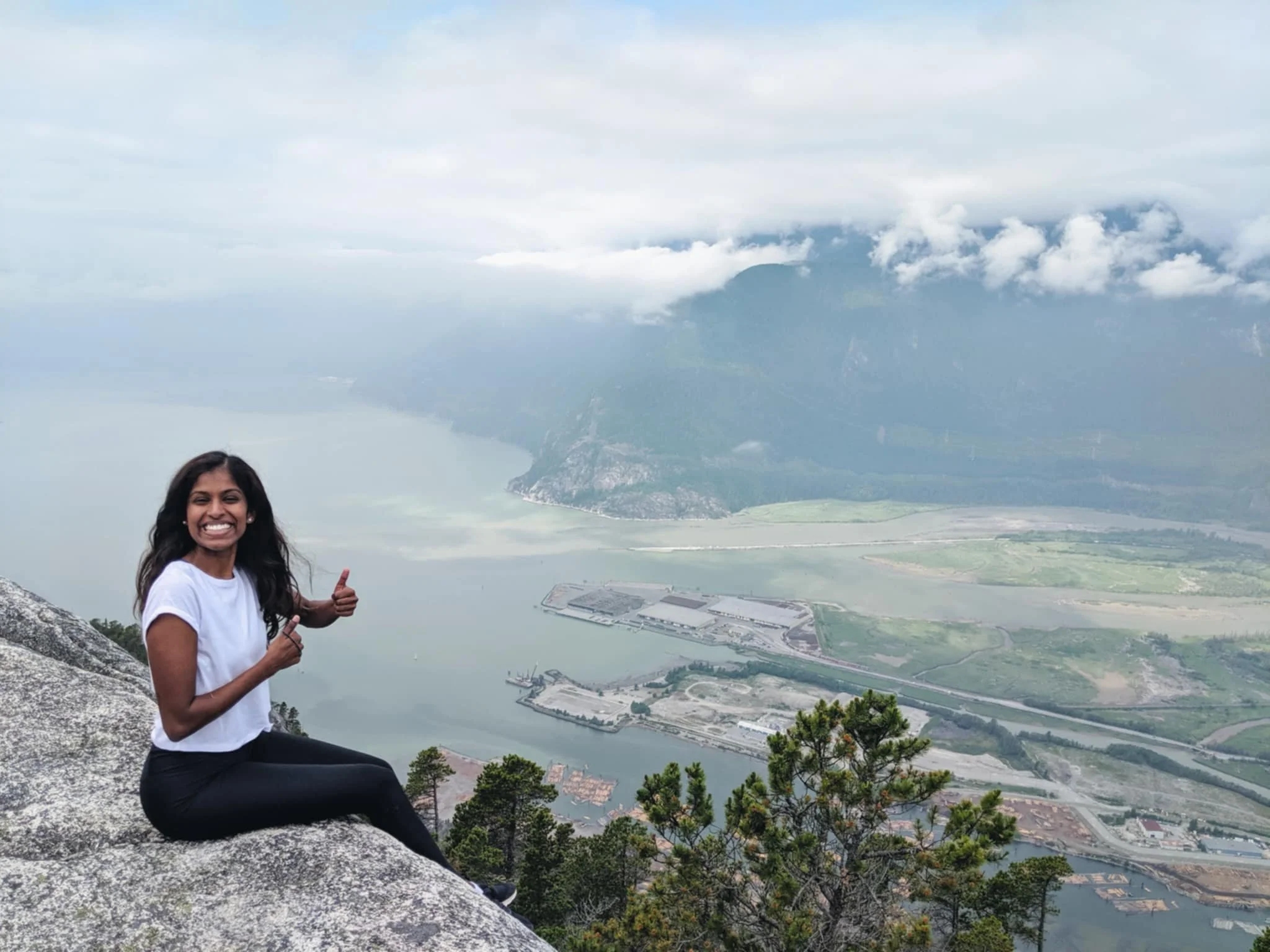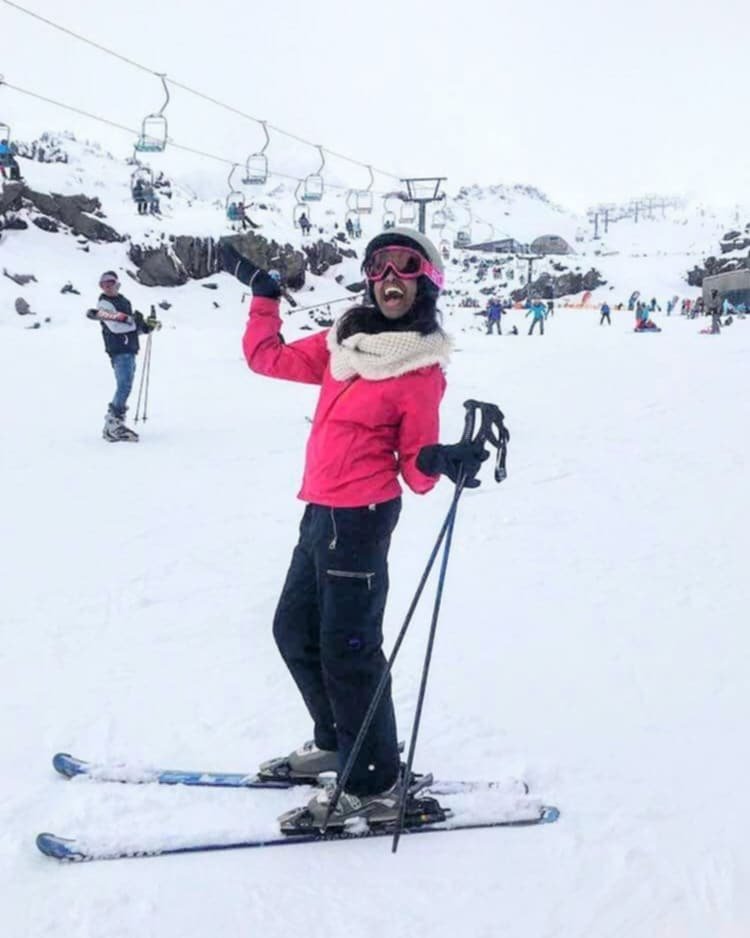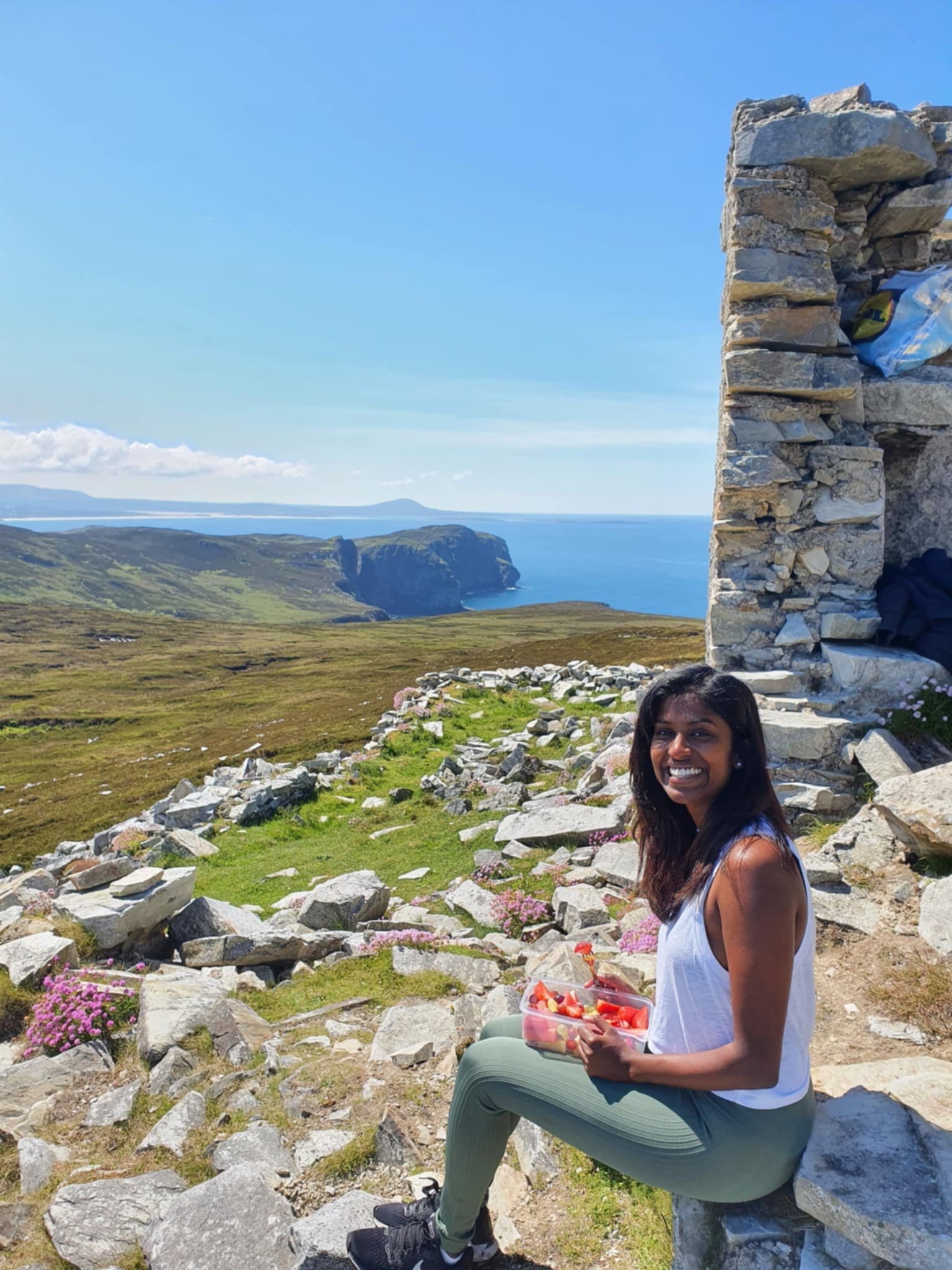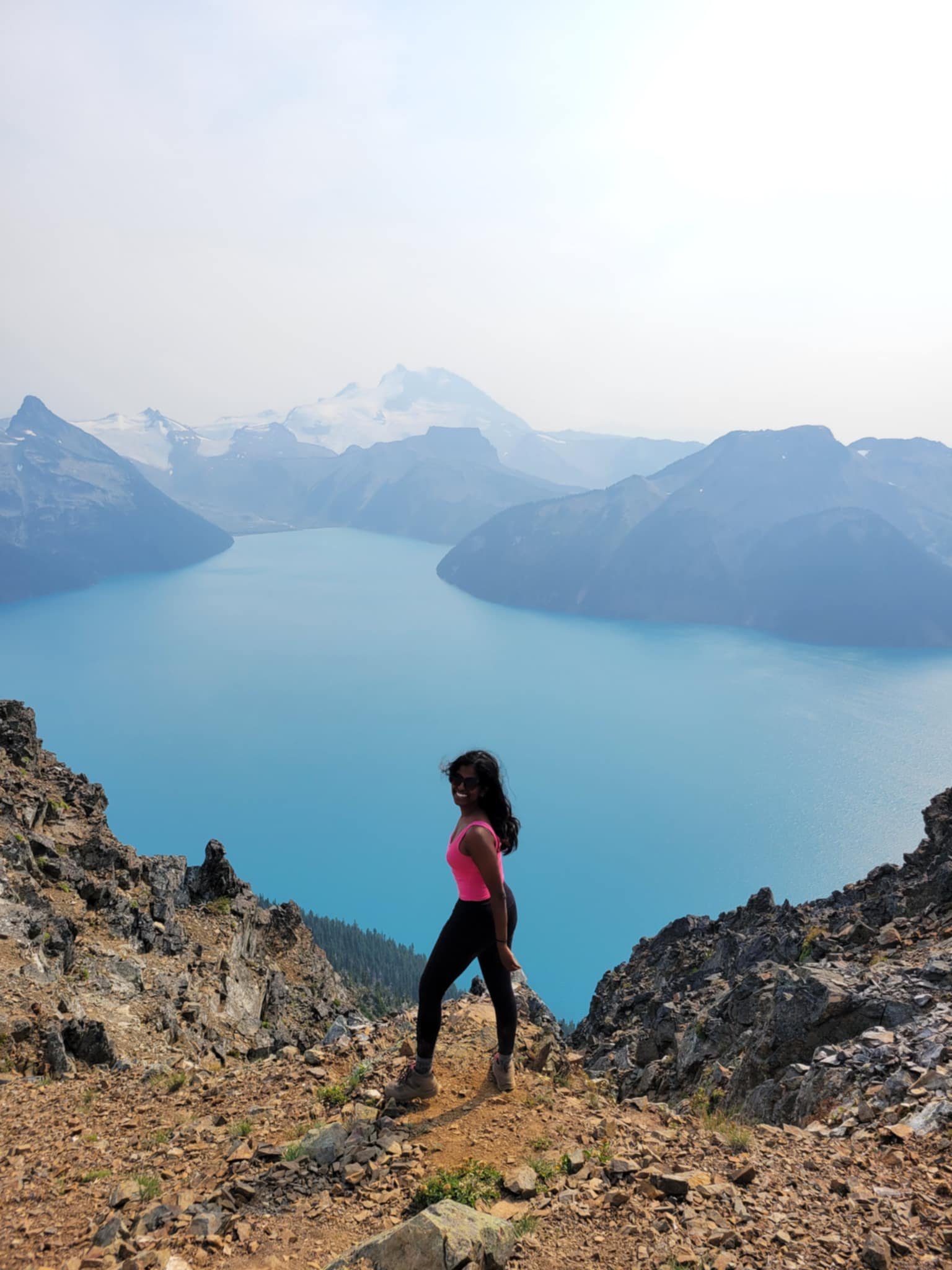Thili Nanayakkara
“Growing up I thought that belonging to so many places was a curse of not belonging to anywhere. These days that same feeling challenges me to know more. I was too Sri Lankan to be from New Zealand, but too New Zealand to be from Sri Lanka. Over time, I have adapted to the idea that cultural identity is not fixed, and is forever in flux. And it is my superpower.”
Thili Nanayakkara has a natural ability to connect with everyone she meets. She’s the kind of friend you can’t wait to introduce, knowing she’ll instantly light up the room. And her most striking feature? Her smile. It’s more than just a hallmark of her warmth and radiant energy—it’s also the mark of a dedicated dentist (and an enthusiastic flosser).
Her ability to connect with people from all walks of life is shaped by a rich tapestry of experiences, having lived across diverse countries and cultures. These experiences have deepened her empathy, fueling her commitment to reducing inequities in dental care and serving underserved communities. They’ve also led her on a continuous journey of self-discovery. Rather than confining herself to a single cultural identity or traditional expectations of womanhood, Thili embraces the fluidity of life. This adaptability allows her to move effortlessly through new experiences, free to be fully and unapologetically herself—without seeking validation from anyone else.
Thili is a dentist, an advocate, an adventurer, and a traveler. She’s also a fiercely loyal and fun-loving friend. This is her story.
Meet Thili
P: Please introduce yourself!
T: My name iis Thilini, but I mostly go by Thili!. I was born in Sri Lanka. I left there when I was 2 months old, moved to Doha, Qatar with my family, and then moved to New Zealand when I was around 11 years old. I identify as being from New Zealand, but really I’m a hybrid of the culture that my parents are from (Sri Lanka) and the one I migrated into (NZ).
P: What do you do for a living?
T: I am currently a dentist working in Vancouver, Canada.
Moving Overseas
P: What made you want to move to Canada?
T: The opportunity to pursue a Working Holiday Visa to Canada as a NZ citizen felt like a privilege and so I thought why not? I’ve always loved travelling and the thought of moving to somewhere new, experiencing a new place, and meeting new people excited me. I thought this would just be a 2 year stint, and now I’m coming up to my third year here and have met friends that are like family. I don’t regret it one bit.
P: What advice would you give to someone who has just moved away from home?
T: Be patient with yourself. Moving to a new country, adjusting to a new place, getting to meet new people and building a community takes time. Be kind to yourself and understand that it's normal to feel a little lost or overwhelmed initially.
P: You’re currently based in Canada, but you’ve had the opportunity to live in several countries. Could you share a bit about that journey?
T: I’ve moved from Sri Lanka, to Qatar, to Sri Lanka, to NZ and now to Canada. I’ve met people from all walks of life. It’s an exciting experience constantly moving somewhere new, but it can also get exhausting having to build roots again every single time you move to another country.
In saying that though, I feel lucky to have pockets of friends and family living in different parts of the world. I feel like I have a home in so many places.
P: How have your experiences across these diverse cultures and communities shaped you?
T: Growing up I thought that belonging to so many places was a curse of not belonging to anywhere. These days that same feeling challenges me to know more. I was too Sri Lankan to be from New Zealand, but too New Zealand to be from Sri Lanka. Over time, I have adapted to the idea that cultural identity is not fixed, and is forever in flux. And it is my superpower.
My experiences moving between all of these places has given me the ability to become more adaptable to different environments and social norms; a broader perspective to appreciate global issues, understand different perspectives, and build empathy toward people from various backgrounds; develop strong problem-solving skills and resilience from constantly adjusting to new schools and friends, and an appreciation for differences in opinion, culture and religion and coexisting with those differences.
I am open to trying new things because my existence in itself is always new.
P: What is the greatest lesson you’ve learned from travelling?
T: Remember that you only get out as much as you put in! Put yourself out there. Meet new people. Try new things. Learn a new skill. Find a new hobby. Go out of your comfort zone. I probably joined every social gathering, online meetup, Facebook group, extra-curricular activity etc to find my people.
I met Meg through a random Facebook group and then eventually Paige (me!), and couldn’t imagine what my life would be without either of them now.
Dentistry
P: What initially inspired you to pursue a career in dentistry?
T:
I enjoyed art and I enjoyed science and a high school teacher of mine suggested dentistry as a profession where I could combine both. A mix of science and hands-on work!
My own experience with braces as a teenager made me realise how much oral health impacts our overall well-being, confidence and relationships. As my smile improved, so did my self-esteem, and I felt more confident in social situations. I was reminded that dentistry is more than just teeth, and that our oral health is deeply connected to our overall physical and mental health.
As I dove more into dentistry as a possible career option, I learnt more about how accessibility to dental care remains a significant challenge to many, with high costs of dental care, limited public funding for adult dental care, geographical barriers where many rural and remote areas lack sufficient dental clinics and practitioners, and the long term health consequences of these untreated dental conditions.
To me, dental care often seemed like a routine part of life, something that’s just expected. It was shocking to learn how the extent of dental disease is more than just a minor inconvenience for some - it’s a major health issue that affects everything from a person’s ability to eat and speak to difficulties in securing employment and fully integrating into their communities.
I entered dentistry with a deep desire to bridge the gap in health disparities and help break the cycle of social and economic exclusion caused by poor dental health.
Dental Disparities
P: You’re passionate about addressing equity issues, especially with marginalised communities. How do you incorporate this commitment into work as a dentist?
T: I am currently a volunteer dentist and board member for a charity organisation called Share a Smile Society in British Columbia, Canada, where we provide dental services to communities in need in remote areas on Vancouver Island.
Last year, I did a 3-week mission trip last year to the Nootka Sounds, where the closest dental clinic is a 5 hour drive. Given the poorly paved roads and tumultuous weather on the island, a regular visit to the dentist is too difficult for many families. Sadly many community members are left with poor oral health and are accustomed to living in dental pain without access to basic dental care.
We are currently in the process of applying for funding for our next mission hopefully in the summer of 2025! (You can support Share a Smile here)
P: Could you share what this commitment looks like in practice?
T: Trauma-informed care and cultural competency - this is especially important when working with marginalised groups who may have experienced trauma, discrimination or systemic inequities in healthcare.
Prior to moving to Canada, I worked for 3 years in Rotorua and Kawerau, where training in being trauma-informed and cultural competency was especially important when treating and working with Indigenous populations to improve patient trust and communication.
P: As a young female leader in the dental industry, have you faced any distinctive challenges?
T: Something I learnt very early on: respectability is more important than likeability - I think as a woman, it is very easy to get caught up in trying to be likeable as it is ingrained into us at such a young age, but respect is more important when it comes to getting the work done.
Establishing boundaries, trusting your knowledge and skills ,and asserting your authority can get you labelled as ‘difficult’, ‘arrogant’ or ‘bossy’, but with time I learnt to trust myself and realised that I am just as capable as my male counterparts. Just because they’re older and talk louder, doesn’t mean they’re smarter.
Womanhood
P: What does being a woman mean to you?
T: There is a minefield of societal expectations to behave a certain way, dress appropriately, have a job, take time off from that job to have kids, find a partner to have those kids with etc.
As a female, so much time is spent walking around trying to appease and break free from these expectations.
Womanhood is what you shape it to be. It is your own unique journey, unexpected, enthralling, and at times painful. You have shaped yourself in ways every other woman has and no other woman has.
It is being enough for yourself and no one else.
